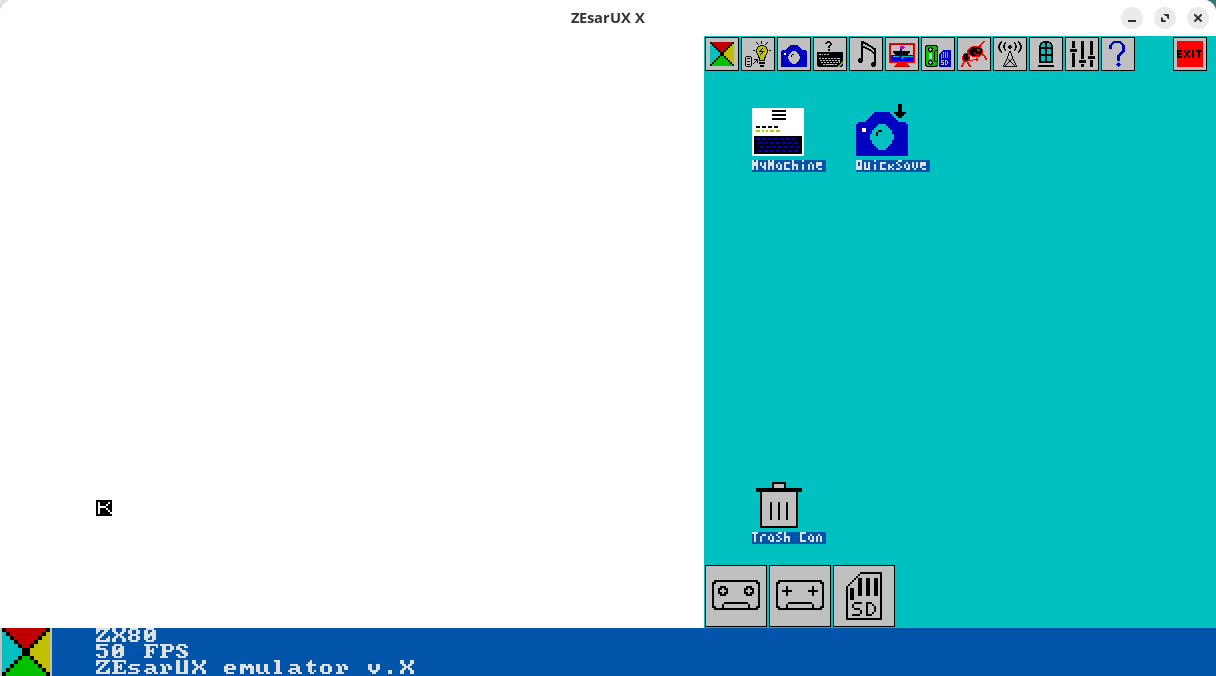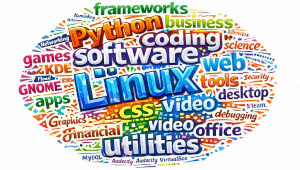Emulation is the practice of using a program (called an emulator) on a PC to mimic the behaviour of a home computer or a video game console, in order to play (usually retro) games on a computer.
Home computers were a class of microcomputers that entered the market in 1977 and became common during the 1980s. They were marketed to consumers as affordable and accessible computers that, for the first time, were intended for the use of a single non-technical user.
Back in the 1980s, home computers came to the forefront of teenagers’ minds. Specifically, the Amiga, ZX Spectrum, and Atari ST were extremely popular. They were hugely popular home computers targeted heavily towards games, but they also ran other types of software.
The Sinclair ZX81 was not Sinclair’s first success with home computers. Its predecessor the Sinclair ZX80 was launched in January 1980. It was available in kit form for £79.95, where buyers needed to assemble and solder it together, and as a ready-built version priced at £99.95. Running a Zilog Z80A CPU at 3.25MHz, it came with 1KB RAM and the integer BASIC had to be crammed into a 4KB ROM. Sinclair sold over 50,000 units.
The ZX80 was groundbreaking in many respects such as being the spark the ignited the home computer market in the UK. It was the first computer to use Sinclair’s legendary touch-sensitive keyboards with BASIC tokens accessible with a single keypress.
Yet the modest hardware meant it could only generate a picture when it was idle, had no colour, no sound, extremely limited memory, and its BASIC didn’t support floating point numbers.
ZX80 ROM
The ZX80’s ROM was developed by John Grant of Nine Tiles in 1979. Its 4KB ROM contained the Sinclair BASIC programming language, editor, and operating system.
The ZX81’s 8KB ROM can be used in the ZX80.
ZX80 emulators

ZEsarUX (shown in the image to the left) is our favourite open source emulator for the ZX80. It provides a third-party ZX80 ROM. There’s support for Linux, Raspberry Pi, FreeBSD, Mac OS X, and Windows.
The ZX80 extremely modest hardware doesn’t pose any problems from an emulation perspective. The emulator offers perfect emulation.
Clock Signal is also a high quality emulator. It supports a wide number of home computers including the ZX80. Through static and runtime analysis CLK seeks automatically to select and configure the appropriate machine to run any provided disk, tape or ROM; to issue any commands necessary to run the software contained on the disk, tape or ROM; and to provide accelerated loading where feasible.
ZX80 software
It’s not difficult to find software still downloadable for the ZX80. For example, Paul Farrow’s site contains a variety of games for the ZX80. Another site to download games is qrp.gr.
| Home Computers | |
|---|---|
| Amiga | Family of personal computers introduced by Commodore in 1985 |
| Amstrad CPC | Combined the computer, keyboard and data storage in a single unit |
| Atari ST | A popular line of personal computers from Atari Corporation |
| BBC Micro | Series of computers designed and built by Acorn |
| Commodore 64 | Hugely popular home computer |
| Dragon | Built around the Motorola MC6809E processor running at 0.89 MHz |
| Electron | A microcomputer sported a Synterek SY6502A CPU clocked at 2MHz |
| MSX | A popular range particularly in Japan |
| Oric | The underrated Oric-1 and Oric Atmos |
| QL | Based on a Motorola 68008 CPU clocked at 7.5 MHz with 128KB of RAM |
| TRS-80 | Very early mass-produced and mass-marketed retail home computers |
| VIC-20 | 8-bit home computer that was released in 1980/1 |
| ZX80 | Predecessor to the ZX81; ignited the UK's home computer market |
| ZX81 | Low-cost introduction to home computing notorious for its RAM pack wobble |
| ZX Spectrum | One of the biggest selling home computers |
 Read our complete collection of recommended free and open source software. Our curated compilation covers all categories of software. Read our complete collection of recommended free and open source software. Our curated compilation covers all categories of software. Spotted a useful open source Linux program not covered on our site? Please let us know by completing this form. The software collection forms part of our series of informative articles for Linux enthusiasts. There are hundreds of in-depth reviews, open source alternatives to proprietary software from large corporations like Google, Microsoft, Apple, Adobe, IBM, Cisco, Oracle, and Autodesk. There are also fun things to try, hardware, free programming books and tutorials, and much more. |

